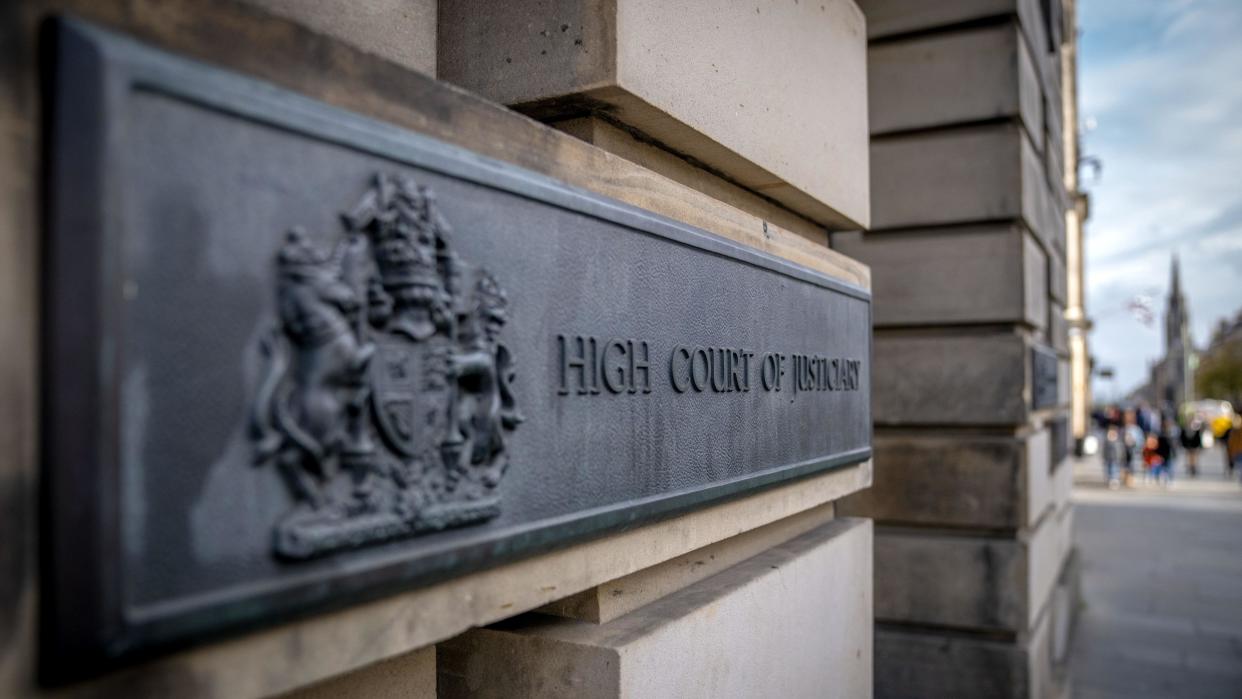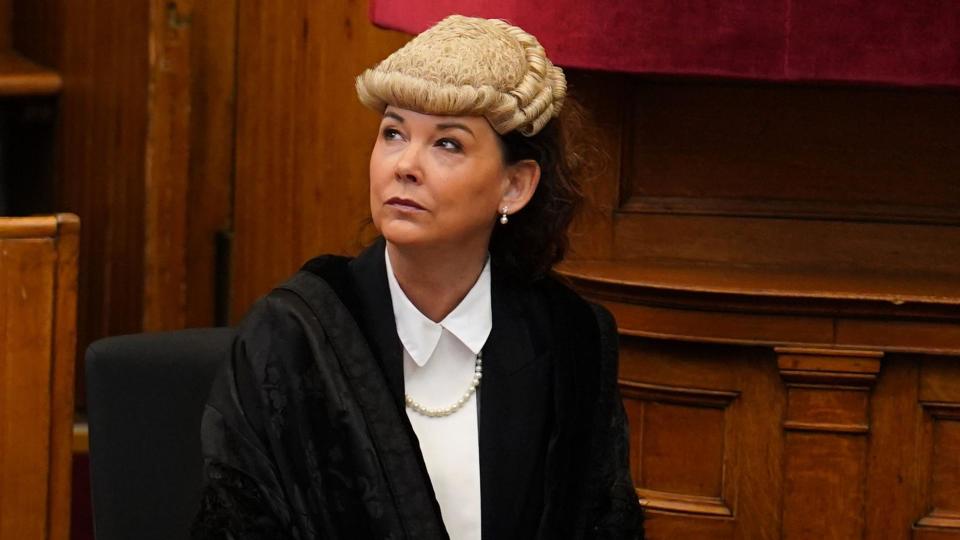Judges asked to scrap 87-year-old 'barrier to rape case justice'

Judges are being asked to overturn an 87-year-old rule in a move which could allow more rape allegations to reach court.
Scotland's top law officer is seeking the change after two sexual offence trials last year ended in acquittals.
The ruling which dates back to 1937 limits what can be done with statements made by an alleged victim shortly after an alleged crime.
The Lord Advocate Dorothy Bain KC is asking for that to be overturned.
She wants the judges to agree that such statements can used as a separate source of evidence that a crime had taken place and the person accused of committing it was responsible.
Her request is scheduled to be heard over two days at the High Court in Edinburgh.
The issue at the heart of it all is corroboration, a unique cornerstone of Scotland's criminal law for decades.
The requirement for corroboration means there has to be evidence from at least two sources to prove the essential facts of a case.
When the alleged offence is rape, prosecutors need corroborated evidence that the accused was the perpetrator, that the physical act took place and there was no consent.
Campaigners have long claimed that corroboration is a barrier to justice, particularly in sexual offence cases.
Others argue it offers protection against miscarriages of justice.
The Henry Morton ruling
The ruling in 1937 was made after a man called Henry Morton successfully challenged his conviction for indecent assault.
Morton was found guilty of indecently assaulting a woman in a tenement close in Glasgow in 1936.
She was the only person who identified him as her attacker and the conviction was quashed on appeal the following year.
At the time, the judges who heard the case ruled that a statement made by an alleged victim shortly after the alleged offence could only be used to show they had been consistent in their account of what happened.
In other words, it could support the contention that they had been saying the same thing all along, but nothing more.
That ruling has been applied ever since.

Last year the Lord Advocate secured an important change in the rules on evidence of distress in rape cases.
She has followed that up by asking the High Court to rule that the judges in 1937 were wrong.
Dorothy Bain will argue that statements taken from alleged victims shortly after the offence should be allowed to corroborate other evidence that the crime happened and the accused was the perpetrator.
Law lecturer Dr Andrew Tickell, from Glasgow Caledonian University, said it would amount to a very significant change.
"This would effectively be the end of corroboration as we’ve known it for almost 100 years in Scotland," he said. "That is a huge intervention in the justice system.
"It would mean we could rely on the evidence of a single witness potentially to corroborate far more than they can under the current law."
If the Lord Advocate wins, it would mean more cases involving rape and other sexual offences will go to court, although no-one can say how many.
Dr Tickell said that would amount to a significant change to Scots Law without the approval of the Scottish Parliament and might increase the pressure on a court system already facing a major backlog in cases.
"Corroboration is seen in two different ways," he said. “Some people see it as a safeguard against wrongful convictions but other people see it as a barrier to cases getting into court.
“If you have a lower corroboration threshold, it means you can bring more cases forward.
“That doesn’t mean the jury will convict, it doesn’t mean they’ll be convinced beyond reasonable doubt, but it means the cases can get to court.”
Not proven verdicts
The Lord Advocate's request comes in the wake of two cases last year which resulted in not proven verdicts, another unique feature of Scots Law.
The first trial concerned a woman in Edinburgh who told passers-by and the police that she had been raped by a man she met in a nightclub.
The second involved the alleged abuse of two boys by their baby sitter.
Whatever the judges decide, it will not affect the outcome of either trial.
As the case in 1937 was heard by seven judges, the Lord Advocate's arguments will be considered by a panel of nine.
It is believed to be the first time in more than 40 years that so many judges have been brought together to reach such a decision.
Senior defence lawyer will say that the law should not be substantially changed. The judges will issue their decision at a later date.
The future of corroboration has been debated before.
In 2011, a report into Scotland's justice system recommended that corroborated evidence should no longer be required in criminal cases, although the Scottish government later decided not to make the change.
That review was led by Lord Carloway, now the Lord Justice General, the country's most senior judge.
He will be one of the nine who will decide whether the 1937 ruling has had its day.


